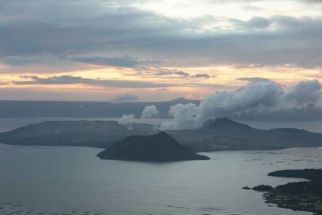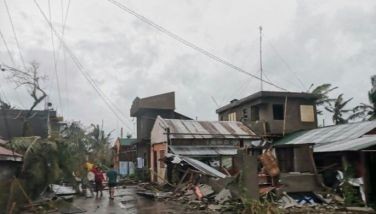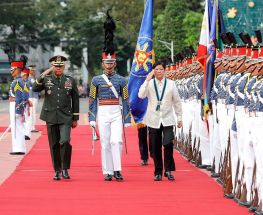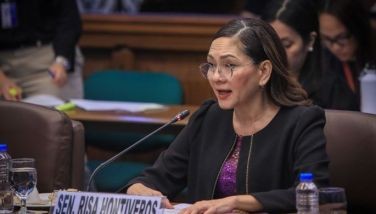‘Nothing wrong with US help’
MANILA, Philippines - Malacañang is leaving it up to Congress and the Philippine National Police (PNP)’s Board of Inquiry to determine the involvement of the US government or any of its agencies in the Mamasapano operation last month.
Officials, however, maintained there is nothing wrong with Washington’s assistance to the Philippines in the fight against terrorism.
Presidential Communications Operations Office Secretary Herminio Coloma Jr. yesterday said the operation in Mamasapano, Maguindanao to capture one of the world’s most wanted terrorists was part of the country’s continuing efforts to stop terrorism.
Coloma pointed out terrorism is a transnational crime that would require “transnational cooperation,” not only between the US and the Philippines, but other countries as well.
“That is why there is also the Interpol – where we exchange information. And according to the Department of National Defense, what we are doing at present is information-sharing and cooperation on the aspect of technical intelligence,” Coloma said.
“But on the aspect of undertaking an operation, our laws are quite clear that there should be no foreign participation and foreign intervention. So this should be figured out during the investigations,” he added.
There have been questions on the extent and nature of US participation in the Jan. 25 operation by the Philippine National Police Special Action Force (PNP-SAF) against Malaysian bomber Zulkifli bin Hir, alias Marwan, and his Filipino cohort Basit Usman.
The SAF launched a covert operation called Operation Plan: Exodus to capture Marwan and Usman who were both hiding in a remote village in Mamasapano.
The mission went haywire after the killing of Marwan, as SAF commandos figured in a firefight with Muslim rebel groups on their way out of the area. A total of 44 SAF policemen were killed.
Coloma was asked about the US involvement in the Mamasapano operation in the context of Washington’s participation to neutralize Abu Sayyaf spokesman Abu Sabaya.
On June 21, 2002, after being tracked by US and Philippine forces, Sabaya was confronted by a special team and was shot and killed at sea.
Prior to his death, the US government had placed a $5-million reward on Sabaya for the May 2001 kidnappings of two American missionaries and the beheading of another American tourist.
In the case of Marwan, the US offered a $6-million reward for his capture and $1 million for Usman because of their international terror links.
The PNP-SAF troopers were able to neutralize Marwan but the government forces would still have to track down Usman, who was reportedly wounded during the operation.
With regard to the way hearings are being conducted in Congress, Coloma said lawmakers were doing their job to ferret out the truth, especially on issues with national security implications.
“I remember during a hearing, there are appropriate instances wherein government resource persons were able to point out security implications,” Coloma said.
He added it would be up to the lawmakers to decide when to hold executive sessions, especially on sensitive security issues.
Sen. Grace Poe, chair of the Senate panel investigating the Mamasapano fiasco, said they are in the process of getting into the reported US involvement in the operation.
“Well, that is an ongoing question that we need to also verify. Nobody is preventing anyone from asking that question in open hearing but in the meantime, with regard to our discussion in the executive session, I will not confirm or deny the discussion on that particular topic,” Poe said.
Asked to comment on newspaper reports about the role of the US, Poe said she is one with the public in determining the “extent of foreign involvement” in the operations.
“We are with you in wanting to know the extent of foreign involvement because if there’s nothing to hide, if there’s nothing wrong, then there’s no reason why we should hide the information. We’re just being careful on when we’re going to release and to what extent,” she told reporters.
‘Of paramount importance’
Separate sources from the intelligence community revealed the US had deployed a manned surveillance aircraft a day before the actual SAF operations.
The same US surveillance unit was also used to help track down the besieged SAF troops led by Supt. Raymond Train.
Train and his men were rescued at past 11 p.m. on Jan. 25, about 16 hours after SAF commander Director Getulio Napeñas had pleaded for reinforcement, records of the PNP investigating team had revealed.
Asked whether the issue of national security should prevail over the people’s call for justice for the 44 SAF troopers, Poe said both issues are “of paramount importance.”
There is always a need to balance national security, national sovereignty and the call for justice and these will be weighed into the entire picture, she said.
Sen. Vicente Sotto III, for his part, said the supposed involvement of the US in the Mamasapano operation was part of Washington’s commitment to help the Philippines in the fight against terrorism. - Christina Mendez, Paolo Romero, Cecille Suerte Felipe, Aie Balagtas-See
- Latest
- Trending

































